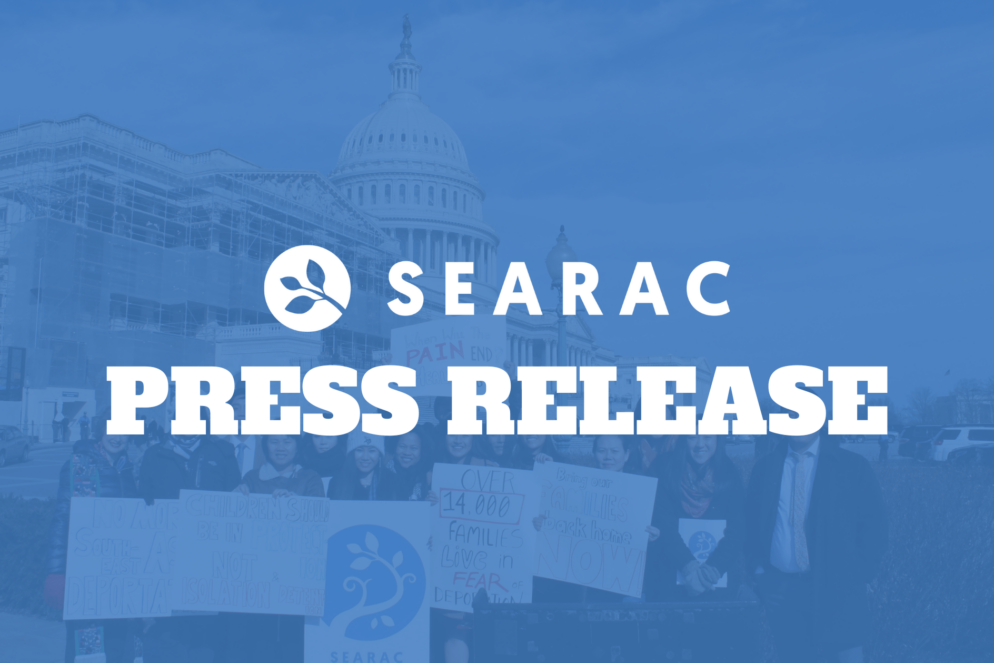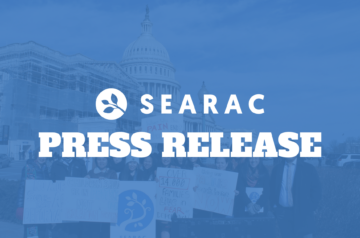Washington, DC –Asian Americans Advancing Justice – AAJC and Southeast Asia Resource Action Center (SEARAC) welcome the U.S. Supreme Court’s decision in United States v. Texas last week, which will reinstate prosecutorial discretion at the U.S. Department of Homeland Security (DHS) for immigration arrests. The policy guidance was first issued in 2021 by the Biden administration but suspended in 2022 by the lawsuit; it outlines factors that DHS and Immigration and Customs Enforcement (ICE) should consider when deciding to arrest and deport someone, including a number of factors recommended by the Advancing Justice Affiliation, SEARAC, and other Asian and Southeast Asian American advocacy groups in a previous letter to the agency, like the impact of deportation on family members.
“For two decades, our communities have fought to end the deportations of Southeast Asian refugees and have their humanity recognized. The prosecutorial discretion memo was a testament to that work,” said Quyên Đinh, executive director at SEARAC. “We are encouraged that the Supreme Court’s decision will help keep more of our families whole, but we recognize that PD is just one part of stopping the unjust deportations of Southeast Asian Americans. Even with this guidance in place, our country still leaves too much power and authority to ICE agents to still remove our community members. SEARAC will continue to work with community members, our partner organizations, and policymakers to overhaul racist immigration policies and ensure that our communities can reunite and heal.”
“The Supreme Court recognized that this lawsuit, brought by anti-immigrant Attorneys General, was not only ‘extraordinarily unusual,’ but also legally unjustifiable,” said Martin Kim, Director of Immigration Advocacy at Advancing Justice – AAJC. “We are gratified that the overwhelming majority of the Court agrees that there is no legal basis for states to force the federal government to make more immigration arrests. While this guidance does help provide a measure of stability to some of our immigrant communities, we urge Congress to pass and for the President to sign reforms to the United States’ draconian immigration enforcement system. The exercise of prosecutorial discretion is not enough.”
Click here for a community explainer on United States v. Texas and here for a fact sheet on prosecutorial discretion by the National Immigration Project.




